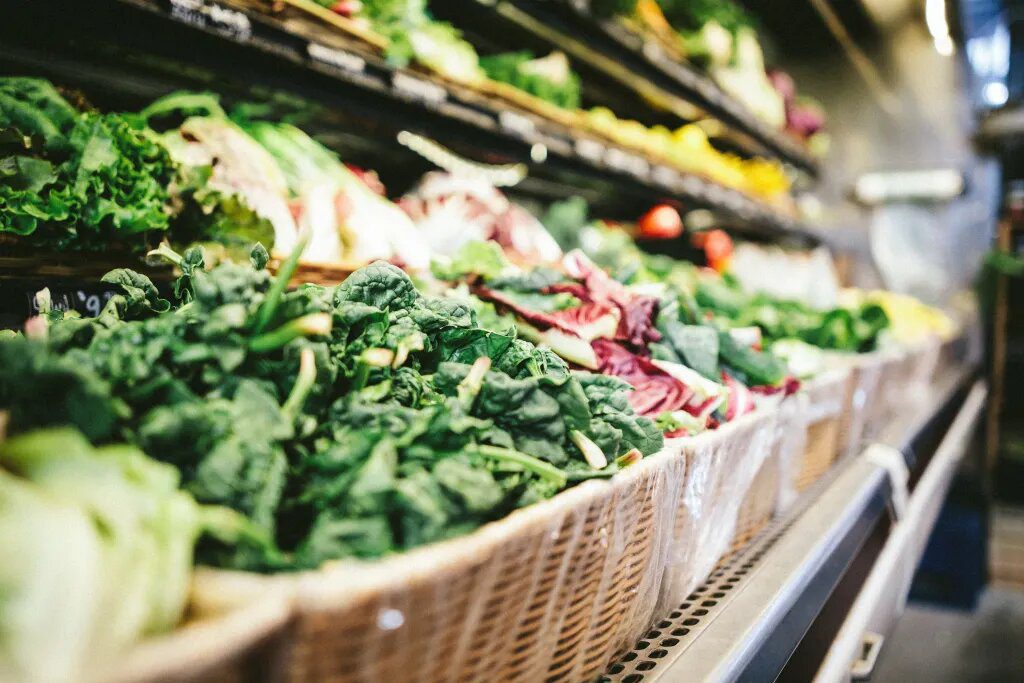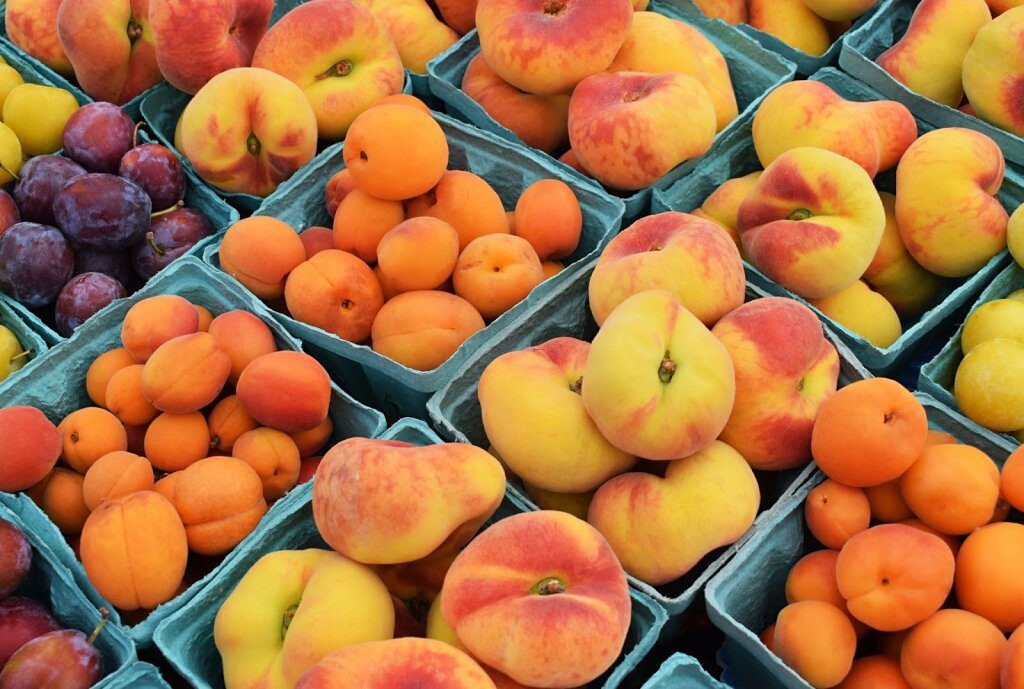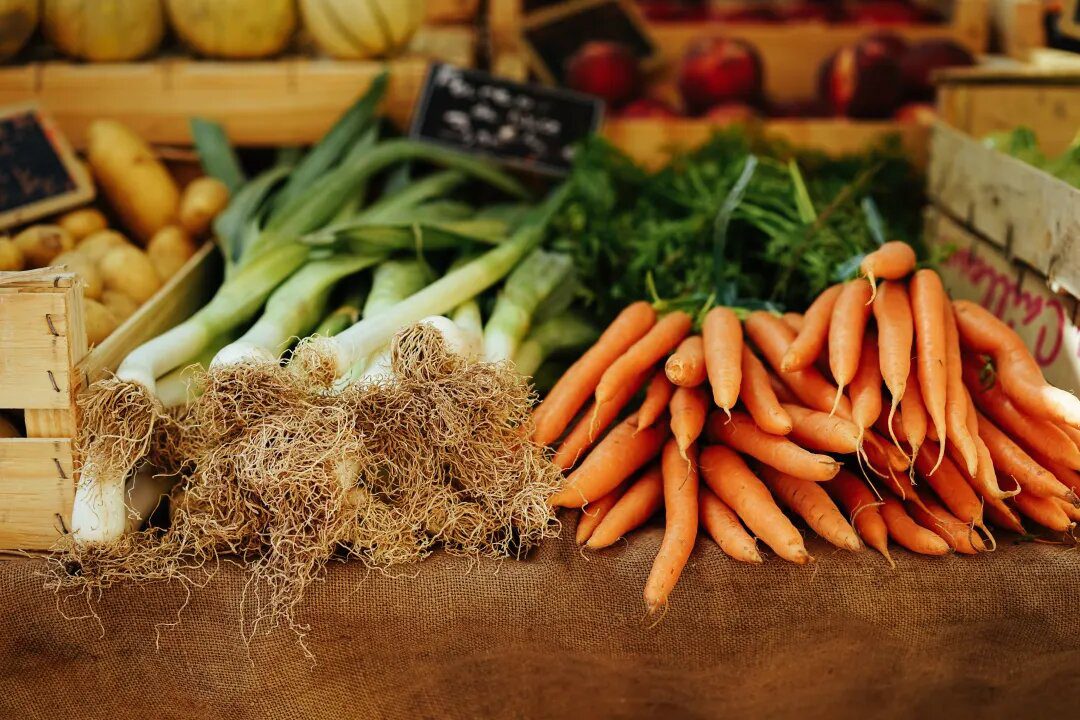Yes, it’s true: climate challenges are affecting your grocery bill.
Heat waves, droughts, floods, and wildfires directly impact food growers all around the world, and we can start to make small changes to help reign in the pain at the checkout line.
The solutions require both systemic and grassroots level changes. History proves that when enough people—consumers, citizens, and followers of Christ—start to act for the good of the hungry, the poor, the thirsty, and the homeless, governments, powers, and principalities often respond for the good of all.
It’ll take more than clipping coupons, but there are small ways individuals can change their habits that can make a collective difference, for both your budget and for the planet.
And it all begins with your pantry.
Purchase and Prepare Fresh Food

Image: Scott Warman
There is an assumption by many Americans that eating a healthy diet is a more expensive way to eat, and on the surface, that can seem true.
Back when I was a lowly college student working a summer job at Six Flags Worlds of Adventure, I’d run over to the nearest McDonald’s, order two items off the dollar menu plus a cup of (free) water and call it “lunch.”
That was all well and good for my budget, but consuming fast and processed food for even short periods of time is proven to be detrimental to your health, and in the long-term, the consequences are severe. Serious health consequences means both poor health and high health bills.
Saving on food costs upfront is a short-term gain, long-term loss… to the extreme.
Likewise, depending on how you calculate the cost of food can make a big difference.
A study completed by Andrea Carlson and Elizabeth Frazão from the USDA’s Economic Research Service analyzed how the price of food is measured to distinguish between cost per calorie, cost per weight, and cost per portion. When you only look at cost per calorie, the cost of processed foods appears to be lower than healthier foods, but when you look at both weight and portion (the amount of food required to fulfill the recommended daily nutritional guidelines), the price of eating healthy is actually less expensive.
“For example, an average portion of potato chips might be cheaper than an average portion of baked potato,” write the authors, “but if it takes two average portions of potato chips to make up a cup equivalent of starchy vegetables, then the baked potato might be a cheaper way to meet the recommendation.”
Our dollars speak volumes, and investing in fresh produce, fresh protein sources, and unprocessed carbohydrates sends the message that these “specialty crops” like tomatoes, cucumbers, and apples are vital to our health and to our global economy. Diverse crop production also restores our soil, the best carbon sequestering device this planet has.
Shop Local Farmers Markets

Image: Chris Barbalis
Most, if not all, local farmers markets are filled with local farmers who care about their land, want to see it flourish, and are interested in producing the best produce, not just the most produce.
Shopping local farmers markets is an opportunity to get to know your growers—you can ask local farmers whether they engage in regenerative land management practices like no-till farming, crop rotation, and planting cover crops. You can inquire about their use of pesticides and fertilizers. And you have the power and freedom to choose which farmers, and farming practices, you want to support.
Plus, an investment in your local farmer is a reinvestment in your local community.
Make at Least One Meatless Meal a Week
As much as my family loves to eat chicken, pork chops, and steak, meat is both expensive to produce and hard on the environment. It takes a lot more natural resources to grow a cow than to grow beans.
Opting for at least one meatless meal a week is a great way to save money on your grocery bill while also reducing the impact on the environment.
Of course, if you can’t bring yourself to go completely vegetarian or vegan, then take smart steps to buy meat from farmers who are doing their best to raise livestock sustainably (see local farmers markets, above).
Meal Plan to Reduce Food Waste
Every time I have to throw away something that has spoiled or rotted in my refrigerator, I picture how much that product cost and imagine tossing that amount of money into the trash can.
I’ve tried to give this visualization to my teenagers as well, but the weight of it hasn’t quite sunk in yet. (It will when they have to buy groceries!)
Besides the impact on my bank account, food waste is also a huge contributor to the climate crisis. Every time we throw out food that could have been consumed, we’re also throwing out all of the transportation energy, production energy, processing energy, packaging energy, and storage energy that went into its delivery to our home.
And then, that food waste sits in a plastic bag in a landfill, emitting more methane into the atmosphere (a greenhouse gas that is even worse than carbon emissions).
Meal planning prior to grocery shopping has significantly reduced the amount of food wasted in our home. I do my best to only buy what I know we’re going to eat over the course of a week and make enough food for leftovers so that lunch is already covered. It’s a great way to save money on our food budget and reduce our personal carbon footprint.
Home-Cooked Meals and Family Dinnertime Is Subversive Christian Resistance

Image: Aneta Pawlik
Think about it! When we say “no” to the frenzied demands of the free market economy to do more and be more, when we say “no” to the frenetic pace of constant programming for our families, when we say “no” to streaming TV and YouTube ads, we’re saying “yes” to our deepest held, core values as followers of Christ.
We resist the demands of culture and society in order to invest precious time and energy into the people we love. We resist the fast-food economy in order to invest in life sustaining relationships with friends and family.
And we resist the instant gratification of processed and pre-packaged foods for the real, the true, the good, and the beautiful fruits of God’s garden, intentionally prepared with love to nourish the bodies of those we love who are being built into the likeness of Christ for good works, which he has chosen in advance for them to do.
What we say “yes” and “no” to broadcasts what we truly value. A commitment to home-cooked family meals is a commitment to the health and well-being of your children… and it’s a commitment to the health and well-being of the planet.





 Copyright
2024
Root and Vine
Copyright
2024
Root and Vine